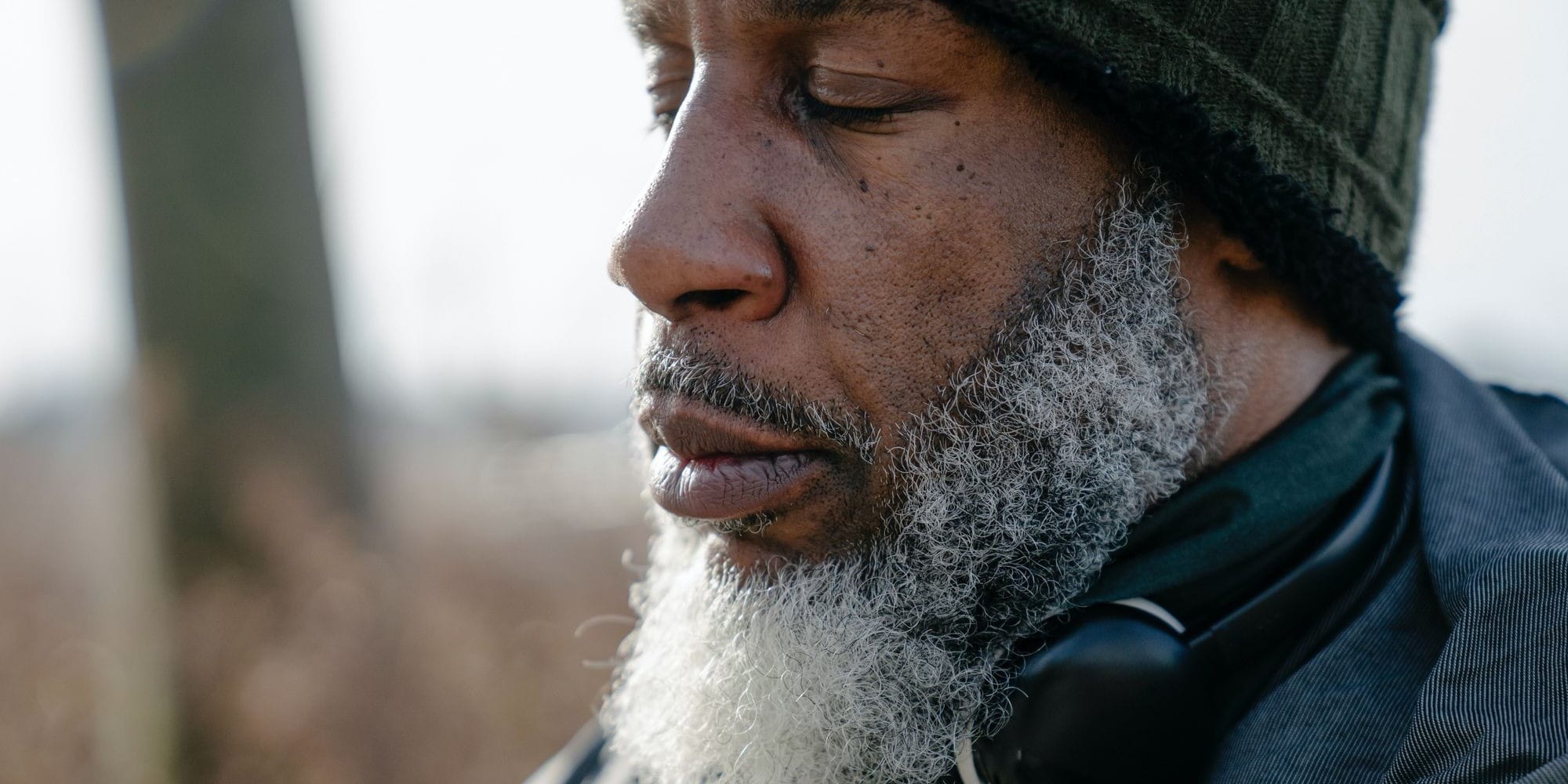Imagine waking up on a beautiful, sunny morning in some heavenly place on vacation — waking up without an alarm clock and about to go to the beach to sunbathe. But suddenly, you think to yourself: “That’s my last day here, and in two days, I’ll be back to work — that’s terrible!”
Soon after, you start worrying about that, and all the magic of this heavenly place disappears even though you are still on vacation. But, instead of enjoying the present moment, you choose to worry.
Worrying is a human being's trademark. Indian guru Jagadish Vasudev, known as Sadguru, once joked about it:
“If your stomach is empty, there’s only one issue — food. But once the stomach becomes full, you have a hundred issues going on.”
That’s the reality of many human beings these days — we made survival easier than ever, yet we suffer from countless mental illnesses. And in this way, our great mental capability becomes a problem, as we can’t stop our minds from constantly worrying about the past or future.
Forever Here and Now
We all know that life has three dimensions: past, present, and future. Yet, some of us seem not to realize that only one — the present, is real. And so I chuckle inside whenever I see a video or a book describing with tremendous passion “how to enter the present?”
Such questions are a bit of nonsense because you can’t escape the present moment no matter how hard you try.
Even when you recall the past, you do it in the present. Memory is the present activity of your brain. And when you use your mind to plan the future, you don’t transport yourself to the future. But you use your mind in the present moment, trying to predict what will happen in the future.
You can’t escape here and now— at least on the actual level.
But sadly, you can devote your life — consciously or not, dwelling on the past or worrying about the future. Or in other words, you can devote what’s real to what’s not — images, concepts, and dreams in your mind. Psychology knows this phenomenon as escapism.
And that’s why the Buddha said:
“Be where you are; otherwise you will miss your life.”
The Actual Experiences in the Present Aren’t So Bad
Most human beings, excluding the ones in poverty, hunger, and war zones, suffer more from their imagination than reality. Seneca — one of the greatest Stoic philosophers, once summed this up:
“We are more often frightened than hurt; and we suffer more from imagination than from reality.”
In this way, escapism is a double-edged sword. People use escapism to run from the unpleasant reality in the present moment to the unreal world of their imagination. But it comes with a price.
Our mind is like a monkey that wants to play with us all the time, and this is how imagination can start to hurt us. Because the mind will feed us with tons of unreal excuses to not take any action and keep on playing inside our imagination — that’s how we can get stuck in life.
We may be afraid of rejection and not share feelings. Or we might avoid some experiences, e.g., bungee jumping, due to a great fear of heights.
But when we meet actual experience in the present moment, we just flow in the experience. Whether we’re getting rejected or not, there is no pain but experience in the present. And while we do bungee jumping, no matter how frightened we were before, we just scream and experience.
There is a simple experiment to realize this: a cold shower. Go and try to do a cold shower and notice how your mind buzzes with excuses. Focus on how scary it feels, but go for it anyway. After the first 30 seconds of a cold shower, you’ll realize that you don’t feel anything — it’s just water.
The Magic of the Present Moment
Our imagination isn’t entirely a bad thing, but many people use it to distract themselves from the present. And this leads not only to lots of stress but also causes many unnecessary problems.
I’m getting closer to thirty, and I go to sleep like a baby — I put my head on a pillow for a few seconds, and then I suddenly wake up in the morning. I like to call it teleportation in a joking tone, as I don’t remember my dreams, so it feels like I’m just closing and then opening my eyes.
And each time I tell people about that, it shocks them. It turns out that the majority of people I know have problems with proper sleep. And the most common answer to: “Why is that so” is a constant stream of thoughts about the past or future as they lay in bed.
Obviously, those aren’t pleasant thoughts, but they most likely regret the past or worry about the future. In this way, nothing bad happens, technically, they lay in a cozy bed, but they suffer from their imagination.
And I have been there, but then, thanks to, i.e., Buddhism, Yoga, and Zen, I discovered it’s a complete waste of time. See, you can’t change anything while lying in bed. And when you waste time on negative imagination, you decrease the quality of your sleep and so the quality of your life.
“The secret of health for both mind and body is not to mourn for the past, nor to worry about the future, but to live the present moment wisely and earnestly.” ― Bukkyo Dendo Kyokai, The Teaching of Buddha
In this way, there is nothing bad in thinking — when you think, think, but when you sleep, sleep, when you eat, eat and when you work, work. I know it may seem like an empty cliche, but give it a try, and you’ll quickly realize that there are no problems in the present moment — only experiences.
The Takeaway
Humans have great cognitive capabilities. But it came to the point that the tail is wagging the dog — we don’t use the mind as a useful tool to think and imagine, but the tool uses us.
And it’s not the problem of our era, as even ancient philosophers wondered why it happens and how to stop it. However, it manifests on a larger scale in our era as most of us don’t need to worry about basic needs but still worry about a million other things.
However, when we realize that no matter what, we only live in the present, we can begin to respect this moment as our life. Once we do it, we may also realize that there are no problems but only experiences in the present. And this can encourage us to live more in reality than in imagination.







